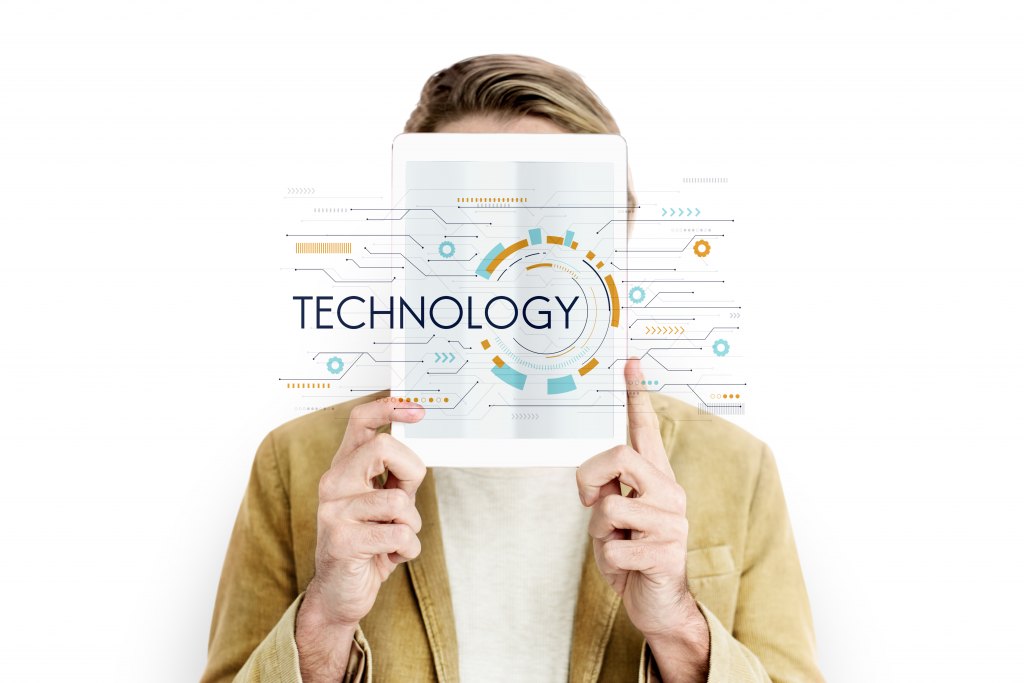Recent technological advances have changed how we view the real and digital world; whether this is for better or worse remains to be seen.
From Artificial Intelligence to Virtual reality, the possibilities of emerging technologies can improve our workflow, the way we communicate and positively impact how we live our lives.
With that in mind, here are the five emerging technology trends you should keep an eye on in 2023.

Technology Background Digital Computer Network
Artificial Intelligence (AI)
Unsurprisingly, Artificial Intelligence is the first entry into technology trends. However, AI has been in the background of our lives for a long time as consumers, with the launch of Alexa and Siri, and other chatbots.
Since the launch of ChatGPT in November of 2022, AI has been everywhere, and companies have launched their software versions to try and keep up with this booming industry. AI has changed how we access complex information, understand data, and even create artwork.
What is the Future of AI in 2023?
Let’s take a look at how AI is revolutionizing technology in 2023.
AI In Healthcare
The emergence of AI has revolutionized the healthcare industry by enhancing the efficiency and accuracy of patient diagnosis, treatment, and patient care. By implementing AI in healthcare, medical professionals can:
- Use Natural Language Processing (NLP) to analyze medical data and records to extract data and keep medical workers up to date with medical advancements.
- Increase accessibility to healthcare. Virtual healthcare assistants allow anyone to access health advice, ask questions and provide guidance from anywhere in the world.
- Use AI-powered algorithms to analyze medical images and data to help specialists identify anomalies or catch the early signs of diseases like cancer or Alzheimer’s.
In the case of healthcare, AI is a vital addition to the industry but is no replacement for the expertise of the health professionals actively working in the field.
AI and Cybersecurity Solutions
As AI developments grow, so do threats to our Internet privacy and safety. AI can continuously monitor vast amounts of data quickly to identify potential hazards in real-time and immediately respond to the threat before it happens.
Through machine learning, AI can constantly analyze threats or inconsistencies in the digital world and protect users and businesses from growing threats such as ransomware or identity theft.
Quantum Computing
Quantum computing is an emerging technology changing how industries utilize computing. It uses quantum mechanics to create much more powerful computers than traditional computers.
How does quantum computing work?
Normally, traditional computers, like the ones we use every day, store and process data in bits, represented by 0 or 1. These numbers are how computers know what information to process and how to process it.
Quantum computers use quantum bits or qubits. Whereas regular computers treat 0 and 1 as separate numbers, qubits, on the other hand, can be 0 or 1 simultaneously.
So, if a traditional computer has a task to count to 10, it would do it one number at a time, but a quantum computer would jump straight to the number ten.
These qubits mean quantum computers can perform complex tasks much quicker than traditional computers, meaning the technology has the potential for great things.
What are quantum computers used for?
Due to the power quantum computers have to solve complex problems, they can be used for a few things, such as:
- Factorizing large numbers will help implement advanced encryption protocols to protect essential data in the cloud and increase the power of cybersecurity.
- Molecular science helps scientists understand complex materials, reactions, and anomalies. This understanding could lead to new drugs to cure serious diseases.
- Fraud detection will be easier with quantum computers as they can analyze huge data sets quickly and identify false transactions.
Despite being in the early stages, quantum computing is a technology trend to keep an eye on over the next few years.
Cloud Software
Despite being around for several years, major companies such as Google, Apple, and Microsoft are facing tough competition from cloud service providers that are placing a greater emphasis on data protection and their users’ privacy.
Cloud Gaming
The advances in cloud software are slowly eliminating the need for physical software, which also runs true for video games. Companies such as Microsoft have implemented cloud gaming for their Xbox and PC customers, allowing people to enjoy gaming instantly from anywhere.
Serverless Computing
Also known as Function as a Service (FaaS) is a model of cloud computing where developers can focus on implementing and running their code as and when required – eliminating the need for managing or maintaining servers.
Serverless computing is beneficial cost-wise because developers and businesses only have to pay for the services they use. It also offers scalability for businesses, allowing them to work based on demand and faster development cycles and implementation for software developers.
Internet of Things (IoT)
The Internet of Things (IoT) describes the physical objects around us that are online with the ability to connect with each other to transmit data and share information with us and perform different tasks and functions.
What is the Future of The Internet of Things?
Smart Cities
The Internet of Things has many benefits for the future, one of which is improving the lives of urban dwellers in smart cities.
As cities continue to grow, the need to control pollution, waste, and public safety is imperative to the lives of a city’s citizens. Smart cities can use technology to
- Control and reduce congestion
- Monitor energy consumption
- Quicker response rates to emergencies
Security
Not only can the IoT help with security in smart cities but it is also being developed for additional security features beyond 2023. Security starts at home, and the IoT allows for extra security from smart door locks, cameras, and alarms.
Here are some additional ways the IoT is changing our security
- Personal security devices to provide alerts and request emergency assistance
- Surveillance and monitoring
- Vehicle security, monitoring, and tracking of your vehicles
As the IoT develops, so too do the concerns around data privacy and monitoring and how these devices track our movements, so this development of technology may be unnerving for the public unless there is complete clarity on how these devices use our data.
Virtual Reality (VR)
Similar to AI, Virtual Reality (VR) gained traction in 2022 and continues to be a game changer in the tech world as of 2023.
VR creates computer-generated images that simulate real-life and 3D environments, giving the user an immersive visual experience to make them feel like they are living in this virtual world.
VR is making its way into many sectors, and its technology is constantly growing in these particular areas:
Education
In the education field, students can travel back in time in History and experience the ancient Greeks or Egyptians or travel across the world to learn the Geography of different continents. VR can allow students to perform surgery in a risk-free and controlled environment for further education.
The possibilities to learn with VR also encourage diversity and accessibility to those that may experience boundaries in their learning. With VR, they can learn from anywhere, interactively and engagingly.
Hyper-Realistic VR
If virtual reality wasn’t enough, VR technology aims to go even further with hyperrealistic VR. Hyper-Realist caught the attention of companies like Meta for the way the technology enhances the VR experience to blur the lines between what’s real and reality.
So far, the difficulties of this technology are the amount of technology required to implement technology, such as haptic feedback (interaction with objects) and the level of graphic processing power needed to create a realistic environment.
The future looks bright for VR, however, and with companies like Apple and Meta investing in technology to stand out from the top competition, it is worth keeping an eye on over the next few years.
Technology Trends for 2023 and Beyond
In short, 2023 has been an excellent year for technology. New technologies are growing in popularity and are likely to change the world, and technology that has been around for a while is also becoming more advanced to meet market demand.
No matter what areas of technology you are interested in, there are a lot of areas to keep your eye on in the coming years.
Key Insights
- Artificial Intelligence (AI)
- AI is revolutionizing healthcare through enhanced diagnostics, virtual healthcare assistants, and AI-powered medical imaging.
- AI plays a crucial role in cybersecurity by monitoring data, identifying threats in real-time, and protecting against cyber threats.
- Quantum Computing
- Quantum computing, leveraging qubits, offers exponential processing power compared to traditional computers.
- Applications include advanced encryption, molecular science, and fraud detection, with the potential for significant advancements in these fields.
- Cloud Software
- Cloud gaming is reducing the need for physical software, enabling instant access to games from anywhere.
- Serverless computing (FaaS) allows developers to run code without managing servers, offering cost efficiency, scalability, and faster development cycles.
- Internet of Things (IoT)
- IoT enhances urban living in smart cities by controlling pollution, monitoring energy consumption, and improving emergency response times.
- IoT improves home and personal security through smart locks, cameras, and vehicle tracking, though concerns about data privacy remain.
- Virtual Reality (VR)
- VR is transforming education by providing immersive learning experiences and accessibility to students worldwide.
- Hyper-realistic VR aims to enhance the virtual experience, with potential applications in various sectors despite technological challenges.
FAQ
- What is Artificial Intelligence (AI) and how is it impacting healthcare? AI refers to the simulation of human intelligence in machines. In healthcare, AI enhances diagnostics, provides virtual healthcare assistance, and uses algorithms to analyze medical images, improving the accuracy and efficiency of patient care.
- How does AI contribute to cybersecurity? AI contributes to cybersecurity by continuously monitoring data, identifying potential threats in real-time, and responding to them swiftly. It uses machine learning to analyze and protect against growing cyber threats like ransomware and identity theft.
- What is quantum computing and how does it differ from traditional computing? Quantum computing uses quantum bits (qubits) that can represent 0 and 1 simultaneously, unlike traditional bits which are either 0 or 1. This allows quantum computers to perform complex tasks much faster, offering significant potential in fields like encryption, molecular science, and fraud detection.
- How is cloud software transforming gaming and development? Cloud software enables cloud gaming, reducing the need for physical software and allowing instant access to games. In development, serverless computing (FaaS) allows developers to run code without managing servers, offering cost savings, scalability, and faster development cycles.
- What are the benefits and concerns of the Internet of Things (IoT)? IoT benefits include enhanced urban living in smart cities through pollution control, energy monitoring, and improved emergency response. It also enhances home and personal security with smart devices. However, there are concerns about data privacy and how these devices track and use personal information.
- How is Virtual Reality (VR) being utilized in education? VR is used in education to provide immersive learning experiences, allowing students to explore historical events, geographic locations, and perform virtual surgeries. It promotes accessibility and engagement, offering interactive learning from anywhere.
- What is hyper-realistic VR and what challenges does it face? Hyper-realistic VR aims to create more lifelike virtual experiences by enhancing visual and tactile feedback. Challenges include the need for advanced technology like haptic feedback and high graphic processing power. Despite these challenges, it holds significant potential for various applications.
























Leave a comment!